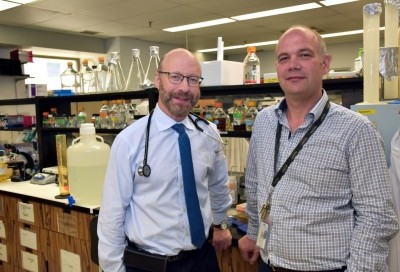Faecal microbiota transplants shown to benefit C. diff patients

The results that have shown in 78% of cases the patient's diarrhoea had stopped and not returned in the 90 days following the treatment.
Dr Victoria McCune, an National Health Service (NHS) consultant clinical scientist in microbiology said: “Our research has successfully shown the benefits of treating recurrent C.diff patients with FMT.
“Our standardised approach to making FMT will improve the quality and safety of this treatment for many more patients.”
The study results come from the first licenced English stool bank, which supplies FMT treatment to patients in the NHS, offering patients access to this treatment.
While antibiotics can be effective in treating C.diff for the first time, between 10-20% of patients don't respond and it comes back. If it does come back to the same patient, the success rate can be as poor as 30%.
The reason C.diff occurs is because good gut bacteria is killed off by antibiotics given for other infections causing severe diarrhoea, abdominal pain, often killing older patients.
Study details
Along with colleagues from the Wolverhampton and Cambridge NHS Trust, the team began collating data from anonymous unrelated healthy donors, screened via health assessment and microbiological testing donated stool.
FMT aliquots were prepared for immediate use or frozen storage, following a production framework developed to comply with Good Manufacturing Practice.
Outcome measures were defined as the clinical response to FMT of diarrhoea within seven days and clinical cure defined as response without diarrhoea recurrence at 90 days.
Results revealed the clinical response was 83·9% after one treatment with the clinical cure rate at 78·2% across the cohort.
Refractory cases appeared to have a lower initial clinical response rate compared to recurrent cases, however at day 90 there were no differences observed between these groups.
“The methodology developed here enabled successful licencing of FMT by The Medicines and Healthcare products Regulatory Agency as a medicinal product,” the study’s authors write.
“This has widened the availability of FMT in the National Health Service via a stool bank and can be applied in other centres across the world to improve access to safe and quality assured treatments.”
Ulcerative colitis treatment
The authors add the development of the service will also play a big part in supporting researchers working on a cure not only for C.diff infections but other conditions such as ulcerative colitis and other diseases linked to the gut microbiome.
Countless studies continue to demonstrate the links between gut health and factors such as the immune system, mood, mental health, autoimmune diseases, endocrine disorders, skin conditions and cancer.
The gut is home to an abundant and diverse microbial community with most people having between 300-500 different species of bacteria living in the digestive tract and while some are harmful, lots are beneficial and even essential to a healthy body.
“This work has turned an unregulated potentially dangerous method of faecal transplantation into a national service providing rapid, safe, regulated, life-saving treatment for a serious disease affecting thousands of people in the UK,” says professor of clinical and public health bacteriology at Birmingham University, Peter Hawkey.
Source: EClinical Medicine
Published online ahead of print: doi.org/10.1016/j.eclinm.2020.100301
“Results from the first English stool bank using faecal microbiota transplant as a medicinal product for the treatment of Clostridioides difficile infection.”
Authors: V.L. McCune et al.















